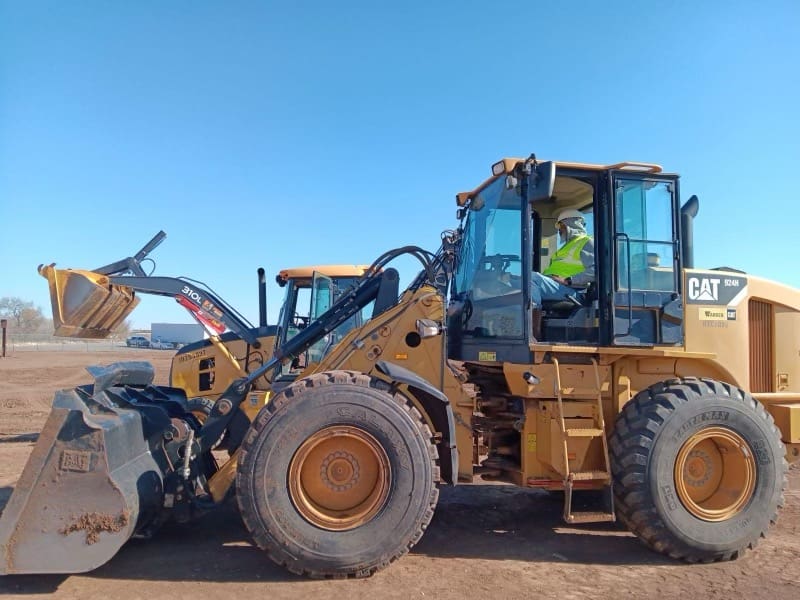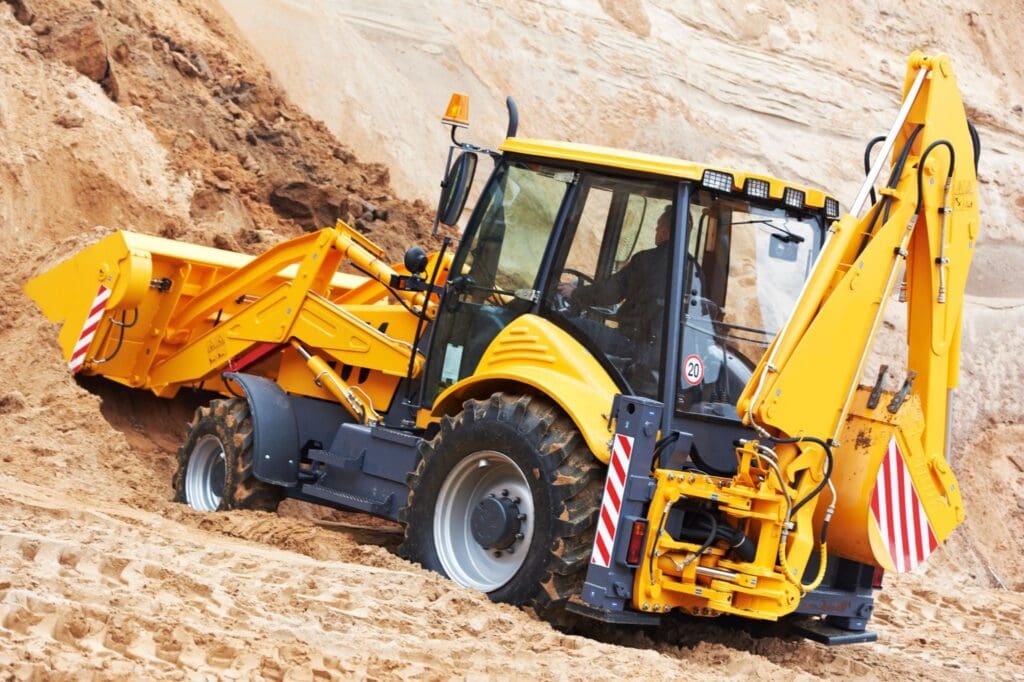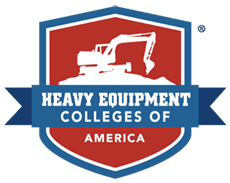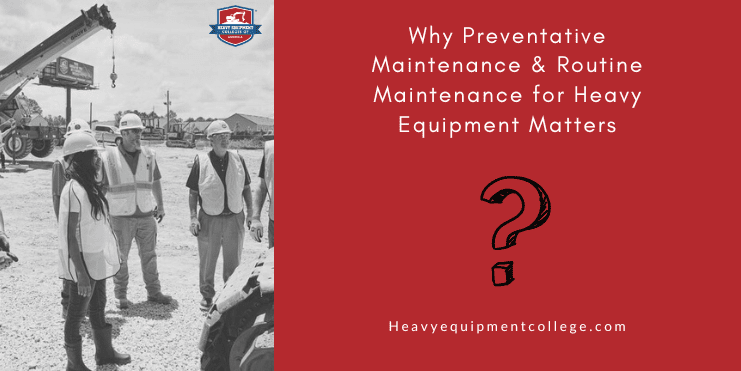Whether you want to operate cranes, bulldozers, or anything in between, you need to acquire proper training through a certified heavy equipment training program. Lucky for you, Heavy Equipment Colleges of America (HEC) has you covered with a generous selection of training programs.
Before you choose which program to enroll in, take some time to review our top maintenance tips for safe and effective heavy equipment operation. They’ll come in handy later.
What Is Heavy Equipment Training?
Heavy equipment training involves learning the knowledge and skills required to safely and effectively operate various types of heavy machinery used in construction, agriculture, and other industries. This training prepares you for a career as a heavy equipment operator and concludes with a certification test.

What Is Heavy Equipment Maintenance?
Heavy equipment involves taking the necessary steps to identify, fix, and prevent equipment-related problems to ensure adequate operation. When it comes to heavy equipment maintenance, there are two main categories: routine maintenance and preventative maintenance. Take a look below to learn more about each type.
- Routine Maintenance: Routine maintenance is regularly scheduled tasks that ensure the functionality of your equipment. It includes things like oil changes, lubrication checks, and tire inspections.
- Preventative Maintenance: Preventative maintenance refers to the process of anticipating and fixing small problems before they become bigger ones. It includes things like visual inspections, technical monitoring, and oil analysis.
Why Is Heavy Equipment Maintenance So Important?
1. Extended Lifespan
Well-maintained equipment lasts longer than neglected equipment. Components work more efficiently and undergo less wear and tear, which extends the equipment’s life significantly.
2. Reduced Expenses
Equipment maintenance and repairs are typically much more cost-effective than replacements. You’ll also waste less money by minimizing downtime on the job caused by waiting for replacement parts.
3. Enhanced Safety
Employers are responsible for maintaining a safe work environment, which includes furnishing equipment that’s safe to operate at all times. A maintenance plan ensures that malfunctioning components are repaired and broken ones are replaced as needed to protect workers from injuries and even death.
4. Lower Risk of Litigation
Neglected equipment is more likely to malfunction or break down, putting workers at risk. Since well-maintained equipment is safer, you’ll reduce your chances of facing litigation for an unsafe work environment.
5. Increased Confidence
Confidence plays a key role in heavy equipment operation. The more confident the operator is, the more likely he or she is to operate the equipment safely and effectively. Routine maintenance gives heavy equipment operators the confidence they need to do the job right and maximize efficiency.
6. Enhanced Availability
Malfunctioning or broken-down equipment can’t be used until it’s either repaired or replaced. This increases downtime, which delays productivity. Regular maintenance ensures that all your equipment operates at peak performance at all times
7. Fewer Unexpected Breakdowns
Poorly maintained equipment is unpredictable. You never know when it could fail on you mid-operation. Rather than dealing with malfunctions and breakdowns when it’s too late, stay one step ahead of the game by performing routine, preventative maintenance. Doing so will eliminate downtime and increase productivity.
Top 8 Maintenance Tips to Extend Heavy Equipment Longevity
Here’s a breakdown of our top eight maintenance tips designed to extend the longevity of your heavy equipment.
- Know Your Machinery
You should know each piece of equipment that you operate like the back of your hand. This includes studying the owner’s manual, which outlines what maintenance is needed and how often as well as practical troubleshooting information. When you know your equipment well, you’ll know when maintenance and repairs are required to restore optimal function. - Check the Machinery for Wear and Tear
Common causes of wear and tear include natural aging, improper operation, overheating, and lack of maintenance. Components that have undergone wear and tear should be repaired or replaced, depending on the severity, to ensure smooth operation moving forward. - Establish a Routine Maintenance Plan
Create and follow a maintenance checklist. Depending on the task, you may need to perform it daily, weekly, or monthly. This step minimizes equipment wear and tear, maximizes its longevity, reduces operating costs, and saves your team valuable time. Your maintenance plan should include tasks like inspections and testing. - Ensure Regular Lubricant Replacements
Lubricant minimizes friction between moving components to ensure smooth operation and reduce wear and tear. Something as simple as replacing the lubricant can extend the lifespan of these components, saving you money. Don’t worry about knowing when to replace the lubricant. The owner’s manual for any piece of heavy machinery will specify when to complete this maintenance step. - Clean the Machines Thoroughly
Dirty equipment can pose various safety risks for its operator. It can overheat, wear down prematurely, and lock up mid-operation. Thankfully, cleaning your equipment is relatively easy. All you need is a high-pressure water hose to spray each component thoroughly. - Train Operators on Proper Machinery Use
Knowing how to operate a piece of equipment extends its longevity, ensures safe operation from start to finish, and reduces downtime on the job. OSHA guidelines require heavy equipment operators to receive official training for each piece of equipment they operate, which includes both classroom and hands-on training. - Document All Repairs and Services Performed
Keep a running list of what maintenance and repairs your equipment receives and at what frequency. It’s possible that you may not be the person who performs maintenance and repairs on the same equipment every time. This simple step will help your team keep track of when each equipment piece needs certain maintenance and repairs performed. - Use the Right Tools for the Job
Each piece of heavy equipment is intended for particular applications. Be sure to use the right equipment for the job at hand. Using the wrong equipment can result in equipment damage or failure and worker injuries.

Become a Certified Heavy Equipment Operator at HEC
HEC is your one-stop shop for all things heavy equipment training. Thanks to our accelerated course model, you can complete your desired program in as little as three weeks. Don’t wait. Get started today by finding a training location near you and submitting an application.

